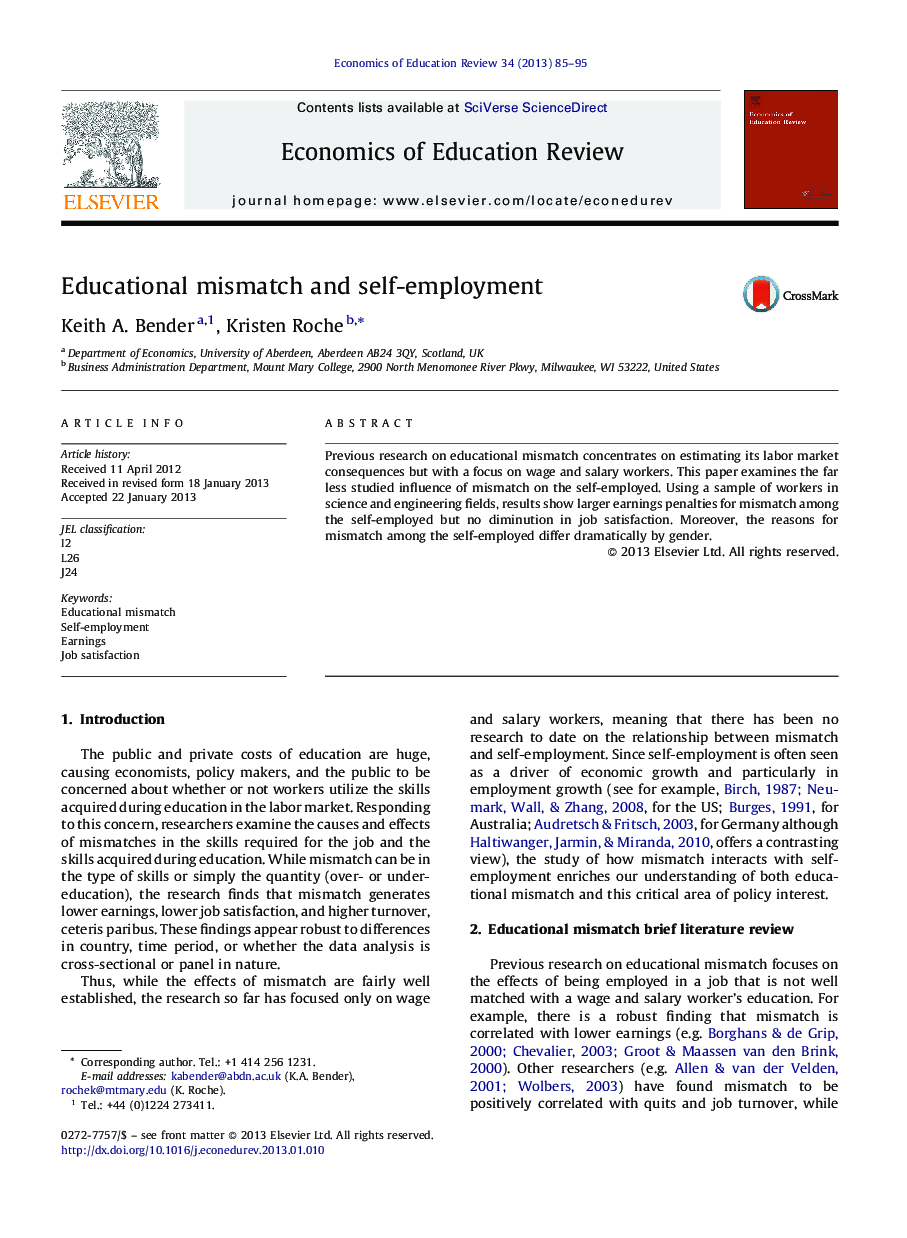| Article ID | Journal | Published Year | Pages | File Type |
|---|---|---|---|---|
| 354481 | Economics of Education Review | 2013 | 11 Pages |
Previous research on educational mismatch concentrates on estimating its labor market consequences but with a focus on wage and salary workers. This paper examines the far less studied influence of mismatch on the self-employed. Using a sample of workers in science and engineering fields, results show larger earnings penalties for mismatch among the self-employed but no diminution in job satisfaction. Moreover, the reasons for mismatch among the self-employed differ dramatically by gender.
► We extend the educational mismatch literature by estimating the causes and effects of mismatch among the self-employed. ► We use a sample of workers in the STEM fields who report the extent to which their work relates to their highest degree. ► Our results indicate that compared to wage and salary workers, the self-employed are more likely to be mismatched. ► Mismatch results in larger earnings penalties for the self-employed, although there is no diminution in job satisfaction. ► Self-employed women have the most education, the highest rate of mismatch, and the largest earnings penalty when mismatched.
